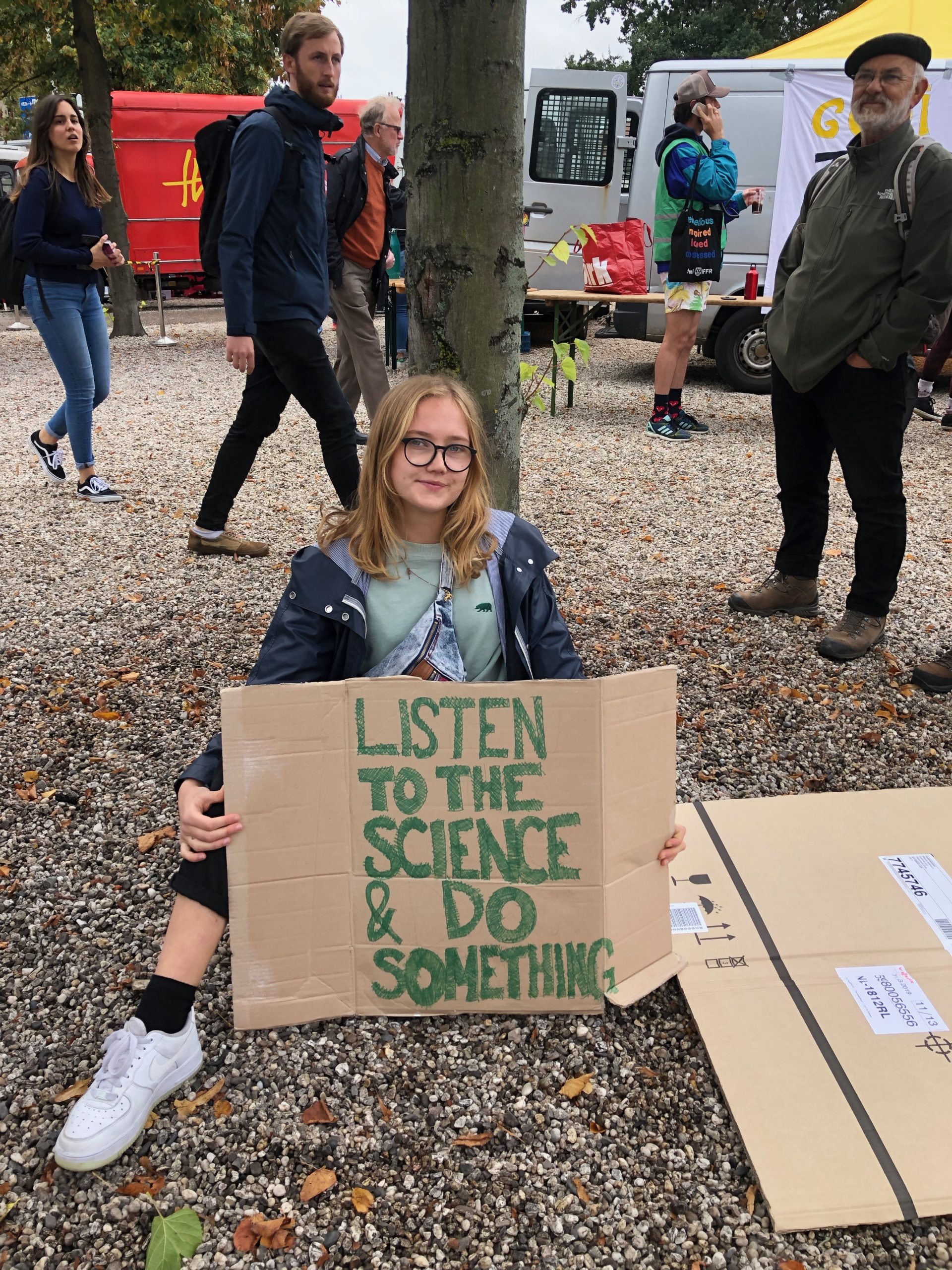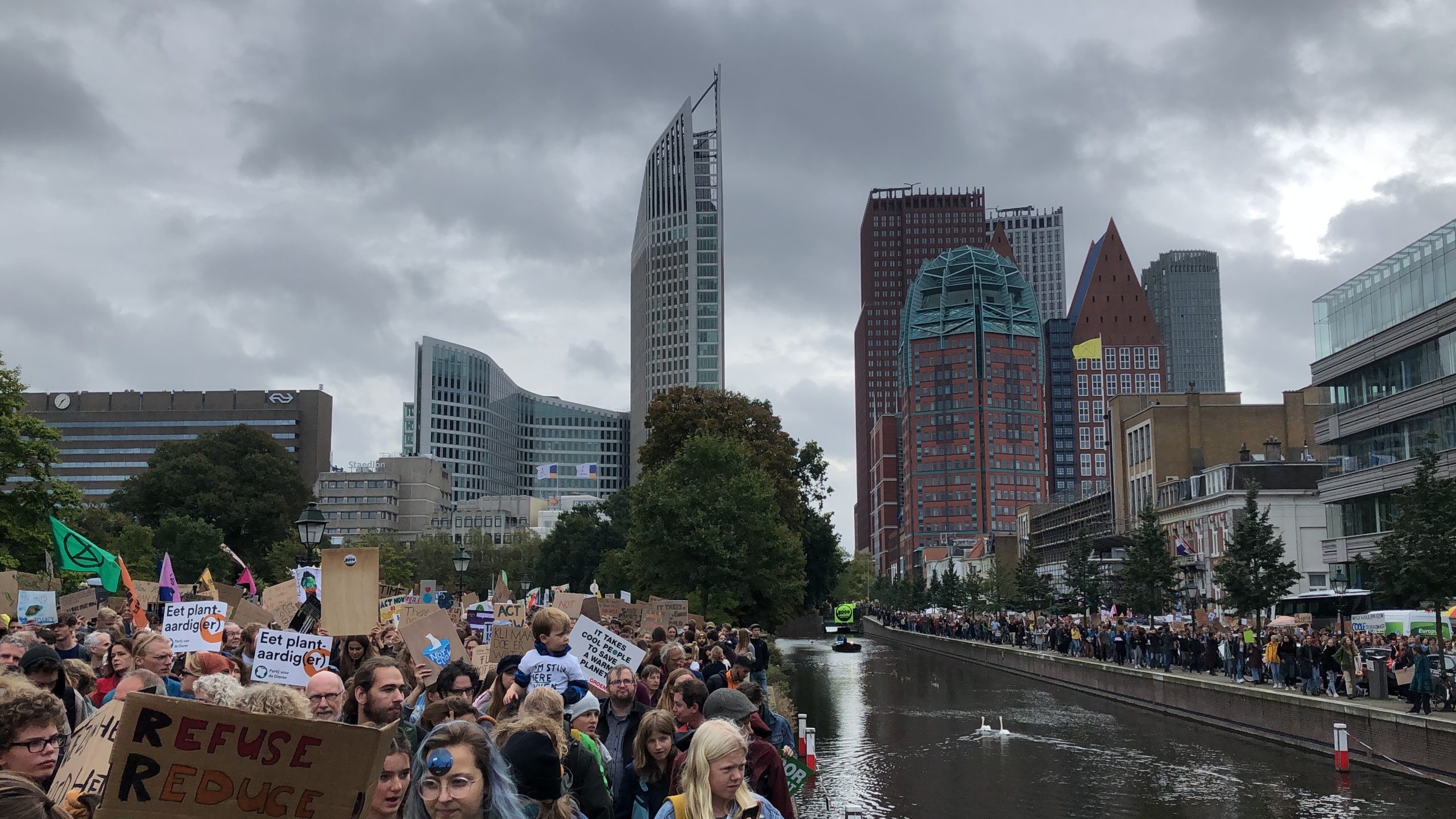OPINION: Young people could save the planet, so start listening to them
This article was written by a participant of the Global Center on Adaptation’s Young Leaders Program. The program develops young talent to become future leaders in global climate change adaptation efforts by enhancing their knowledge, skills, and ability to thrive in an international environment.
I
n the past two years, I watched the world turn a blind eye on what I perceived was an obvious climate emergency, and I simply could not look away. Now, with COVID-19 in the media spotlight, the stakes are higher than ever to get climate change to the top of the global agenda.
I am 20 years old, and like my entire generation, I am growing up and trying to figure out who I am in a world that feels increasingly uncertain. The way humanity has prospered and developed to improve the living conditions for more people, year after year, has caught up to us. We have deeply-grounded scientific evidence to prove that this incredible progress has been created at the cost of our planet, its resources and innocent people. The evidence speaks clearly: if we do not act within a short time to curb carbon emissions, the well-being of millions of us will be negatively affected in future. The degradation of our environment is already affecting the lives of people across the world. It is no longer simply a discussion about when or how to mitigate carbon – it has transcended into a call for climate adaptation and action now.

Frida Nilsson
Who pays?
The wealthier part of our world is responsible for the majority of greenhouse gas emissions, yet the communities hardest hit did least to cause the problem. I live in and benefit from the wealthy part of our world, and somehow we are the most hesitant to redefine our food, energy and transportation systems. We are not critical enough of ourselves to abide to the Paris Agreement, and feel far away from living in the crisis other people wake up in every day. This dissonance disgusted me and I feel it would be wrong not to speak up.
The privilege of living in a political system that allows me to criticize it is something I feel it is my responsibility to use. I realized that I could bring my frustration from dinner conversations with my friends to cardboard signs and into the streets. We took our concern and sang with crowds that keep getting bigger, empowering us with every strike. We started a Friday’s For Future chapter in my college town and currently organize several strikes and events to motivate more people to voice their concerns. There was a notable characteristic that these strikes shared: the majority of us were young.
Last COP
In November 2019, I was contacted by the Global Center on Adaptation and invited to represent and speak as youth at their high-level forum at COP25 in Madrid. I was ecstatic and honored to hold such an important role in an environment that for a long time has not properly listened to people my age. Over three days, I got to experience international relations first-hand, engage with powerful decision-makers, learn about incredible NGO projects and meet the most inspiring young activists. I am forever grateful; this was an unreal opportunity and gave me insights I will keep for the rest of my life.
Walking past the different pavilions and paying attention to the suit and ties walking in and out of negotiation rooms I did notice a huge piece of the puzzle missing: decisions were being made to ensure the livelihood of future generations, yet barely any young people were involved.

“Young people carry the burden of this crisis”. Image courtesy Frida Nilsson
Listen to younger voices
Excluding young people in decision-making, in all areas, but especially in climate action like adaptation, is not only careless but a missed opportunity.
Young people carry the burden of this crisis. It has been unfairly passed down to us from older generations, leaving the consequences of inaction in our hands. Many of us whose quality of life will be, or already is, directly affected by the climate crisis are unable to influence policies needed to protect us, whether it is through voting age or exclusion. Our concern matters, but so does our input. Teaching and engaging youth in school about the environment and how to sustain it can prepare us for the upcoming effects, but also spark creative ideas for solutions.
We need to encourage decision-makers to not only invite us to the table, but to listen to what we have to say. Painting us into the picture is not enough, tokenizing us is more harmful than not inviting us at all. Sure, maybe we do not have the same level of experience as those sitting next to us yet, but that should not diminish our role.
Seize the moment
Sometimes the climate emergency can feel hopeless, and older generations may feel the new generation is always angry and sad. But if you think that is why we strike you are wrong. Happiness and the love for a good life is the core motivation for us and should be for everybody involved in climate-related decision-making.
We are now faced with a strange and unexpected opportunity to break the mold and disrupt the status quo. COVID-19 is having a lasting impact on the political and economic sphere and is changing what people value the most in life. We need to seize this opportunity to kick-start serious action for the climate emergency and become the generation that would not just sit and watch.
The ideas presented in this article aim to inspire adaptation action – they are the views of the author and do not necessarily reflect those of the Global Center on Adaptation.